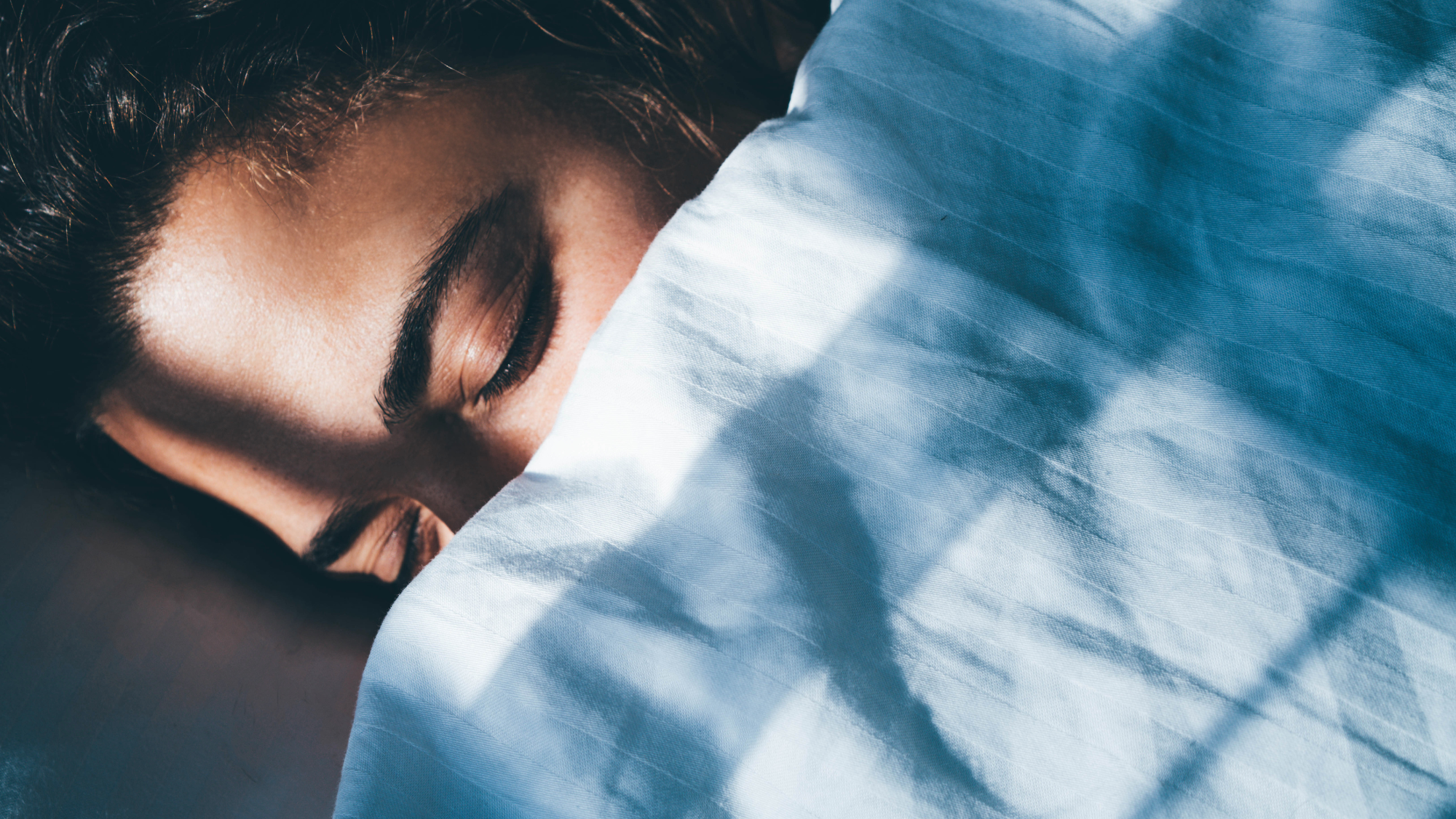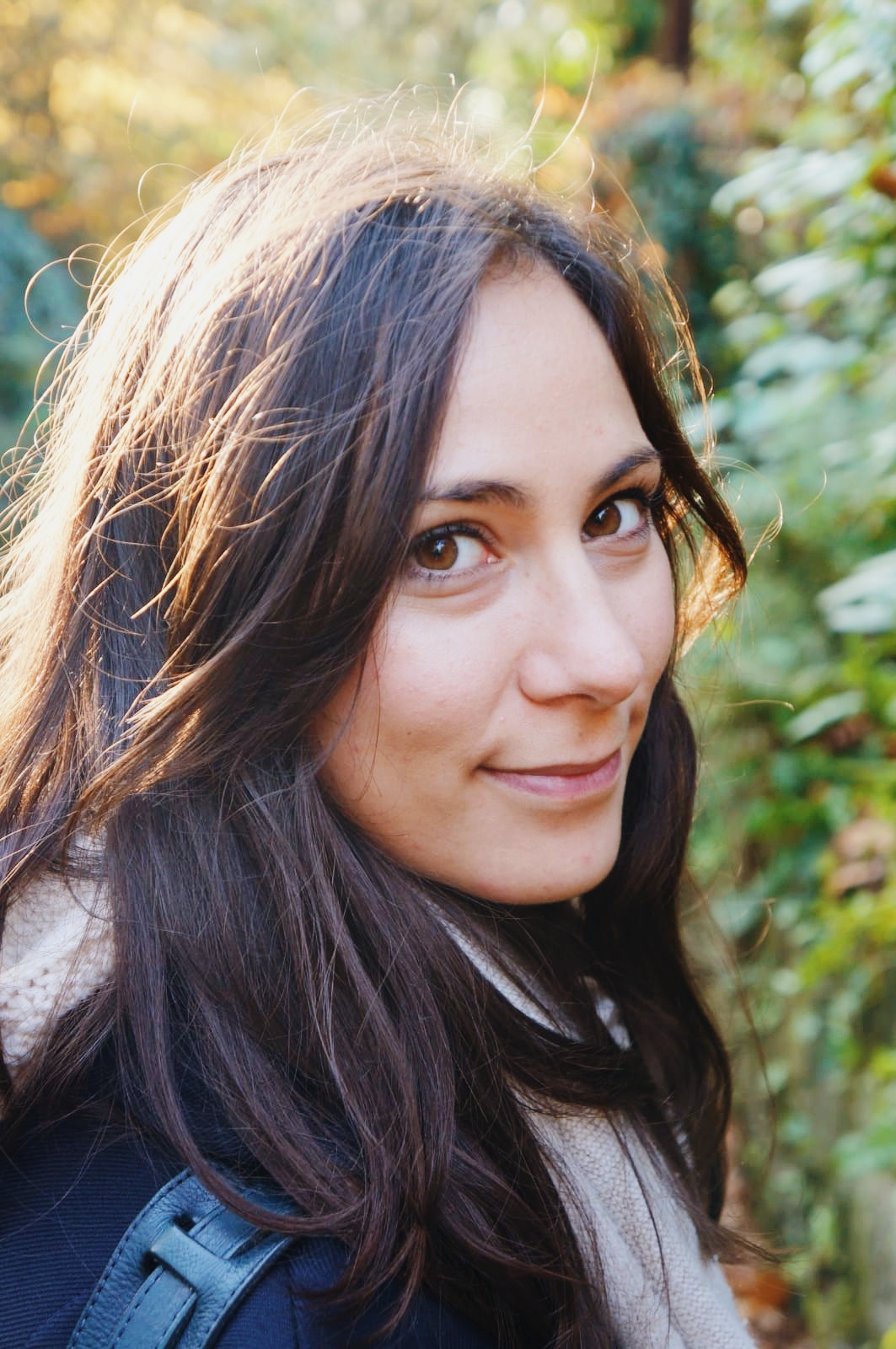Searching for the best sleep tracking apps? These 8 promise to help you get the most restful night's sleep
Waking up tired or struggling to drift off? Tech could be the solution.


There's a reason search for sleep tracker apps is up 22% - every human needs sleep to survive and thrive, and yet, so many of us struggle to get enough shut-eye.
According to a recent survey by sleep experts the Sleep School, almost half of the global population (46%) are currently unsatisfied with their sleep quality. While we know that seven to nine hours is ideal - how much sleep you need exactly can vary from person to person - for those suffering from insomnia or sleep deprivation, getting as much is far from straightforward.
Interestingly, the findings also highlighted that most people don't know how to improve their sleep, with 56% admitting that it's a problem they don't know how to address.
Enter stage right a sleep tracking app - embraced by the likes of Gwyneth Paltrow, Kim Kardashian and Prince Harry. Could it be time to introduce one into your life? We've asked the experts for their take.
How can sleep tracking apps be beneficial?
Okay, you all know that using your phone before (read: in) bed is normally seen as a big no no, but stay with us. Sleep tracking apps, whether on your phone or via an accessory like a watch, can help some people reassess their sleep patterns and give it more importance. From stress and general life pressures to more serious sleep conditions, a lot can get in the way of a good nights kip, leaving us exhausted.
"Sleeping tracking apps can be beneficial if they are created by a credible brand or sleep expert, and offer clinically proven education and therapy," explains sleep expert, Dr Guy Meadows. They can be useful in offering specific help for sleep issues, such as insomnia, sleep anxiety, and trauma, he adds.
That said, he stresses the importance though of looking at how to fix any sleep problems in the long term, rather than just focusing on quick fixes - something he's passionate about through his work as co-founder of the Sleep School (which train UK GP’s and healthcare professionals in sleep therapy).
Celebrity news, beauty, fashion advice, and fascinating features, delivered straight to your inbox!
Below, we've rounded up some of the best sleep tracking apps to try, plus some that are our go-tos to help us fall asleep and get a calm, restful night's slumber.
While you're here, don't miss our guides to sleep hygiene, soothing sleep positions to try, and the best beauty sleep products, to boot.
8 best sleep tracking apps to try tonight
1. SleepScore
About the sleep tracker app: The New York Times called SleepScore the best sleeping tracker app currently available, praising it for being "intuitive and convenient".
If you like a detailed breakdown of your data, then this is a good sleep tracking app to try. Your nightly sleep score is broken down into sleep duration, time taken to fall asleep, light sleep, deep sleep, REM sleep, and wake time. It's all tracked using the microphone and speaker on your phone to track your breathing rate and body movement (don't worry, the brand promise they don't record).
To help improve your sleep score, the app then recommends science-backed advice and helps you track the progress you're making over time.
Cost: Free to download. For advanced features there is a Premium subscription, which is either billed monthly or annually. Available on Apple and Android.
A post shared by SleepScore (@sleepscore)
A photo posted by on
2. Sleep Cycle
About the sleep tracker app: Another popular sleep tracking app, Sleep Cycle keeps it simple in terms of displaying the metrics it records. You can see your sleep trends over time at a glance, thanks to its easy-to-read graphs. The app also offers up data on how countries across the world are sleeping, so you can spot how users in other countries are getting on.
It also features smart-alarm sounds and is designed to help wake you up at just the right time based on your sleep analysis. Pretty clever stuff.
Cost: Free to download. Premium subscription is priced at £29.49 for the year. Available on Apple, Android and Huawei.
A post shared by Sleep Cycle (@sleepcyclealarmclock)
A photo posted by on
3. Oura
About the sleep tracker app: Beloved by celebrities including Jennifer Aniston, Gwyneth Paltrow, Kim Kardashian, and Prince Harry, this sleep tracker wearable has garnered a lot of attention.
So, how does it work? First up, there's a chunky ring to wear, which collects data from your heart rate and temperature to activity and sleep. Then there's an accompanying phone app that lays out the metrics for you, such as a sleep score from 1-100. The score is decided based on how long you spent in each sleep stage, plus body signals such as temperature and heart rate.
For a more in-depth review of the Oura Ring, check out our guide to the best fitness trackers according to the Marie Claire UK team. Editor Sunil Makan has tried the app personally and is a fan.
Cost: The ring is priced at around £263 ($299), while a monthly membership is required for the app ($5.99 USD for US members, €5.99 for EU members and $6.99 USD for rest of world). Available on both Apple and Android devices.
A post shared by ŌURA (@ouraring)
A photo posted by on
4. Sleep School Insomnia app
About the sleep tracker app: Insomnia is a sleeping disorder that's believed to affect one in three people in the UK. As well as being a horrible thing to battle with, it's an issue that requires more specialised treatment.
Step in then, the Sleep School Insomnia app. Based on their research and using evidence-based tools, the app has been created by expert sleep doctors.
Once downloaded, users are invited to take a survey identifying their sleep goals and what is stopping them from getting the rest they need. Then, Dr Guy Meadows guides users through the recommended courses, which include daily tips, weekly audio series, and a 30-day in-depth support course.
Cost: Free to download, but in order to access the full content you'll need to purchase a subscription that costs £29.99 per year. Available on both Apple and Android devices.
A post shared by Sleep School (@thesleepschool)
A photo posted by on
5. MotionX
About the sleep tracking app: Calling itself a "sleep optimisation app," not only does this app monitor your sleep, tell you when you woke up throughout the night and report on your body movement, too, but it promises to measure your heart rate to provide further insight into the quality of your sleep, too. Neat.
Fun fact: there's even the option for the app to wake you up when your sleep quality lowers, so you're not wasting time squeezing in shut eye if it's not benefitting your body. Interesting...
Cost: Available on both Apple devices.

6. Garmin, Fitbit, Whoop and more
About the apps: If you've got a bit of disposable income, fitness trackers are one of the most reliable ways to track your sleep (read our guide to the best fitness trackers, here, tried and tested by team MC).
Pretty much all fitness wearables these days come with inbuilt sleep tracking. Whatever your preference, be it the Apple Watch, Garmin, Google Pixel Watch, Fitbit, WHOOP Band, or Wahoo ELEMNT RIVAL, each of these wearable fitness trackers will measure elements of your nighttime behaviour.
While it is possible to instantly access sleep scores on some of the devices, for a more in-depth look, downloading their accompanying apps is a good idea. Link up your device to the app on your phone and you'll have sleep tracking data in your pocket before you know it.
Cost: Free to download. Subscriptions depend on the brand and service. You can download the Apple Watch app here, Garmin Connect on Apple and Android, Google Pixel Watch here, Fitbit: Health and Fitness on Apple and Android, WHOOP on Apple and Android and Wahoo ELEMNT Companion on Apple and Android.
A post shared by WHOOP (@whoop)
A photo posted by on
Other good apps to download for a good nights zzz
7. Headspace
About the app: Okay, so it doesn't actually track your sleep but it's a true favourite when it comes to relaxing before bedtime. A hugely popular meditation app, Headspace, has a multitude of resources that are perfect for those struggling to sleep or, perhaps, wanting to work on their sleep hygiene.
Choose from easy-to-digest nuggets on mindfulness, meditation, de-stressing and rest. With its vibrant and cute aesthetic, it's also a joyful app that'll make you smile and hopefully soothe you to a better night's rest.
Cost: Free seven-day trial, then a subscription of £9.99/month or opt for a free 14-day trial and then a subscription of £4.17/month. Available on both Apple(opens in new tab) and Android devices.
A post shared by Headspace (@headspace)
A photo posted by on
8. Calm
About the app: This app hardly needs an introduction: so many of us are familiar already with it's soothing bedtime tales, meditation sessions and library of calming sounds to nod off to. Another great feature of this app is the sleep timer, which can be set to play ambient music until you drift off.
Again, it's not a sleep tracker app per se, but Calm can be used to help with a better sleep routine and assess how the inclusion of practices such as meditation aid with helping you nod off.
Cost: Free. To access all content, you'll need a subscription to Calm Premium, which can be trialed for free over seven days. After that, it's £28.99 billed annually. Available on both Apple and Android devices.
A photo posted by on
What's the best sleep tracker available?
Of course, it depends on whether you have a fitness tracker already - which as pointed out above, will automatically collect sleep data. If not, then mobile apps such as SleepScore and Sleep Cycle are a great option to try.
If your overall sleep routine and learning how to be more calm is the priority, then meditation apps such as Calm and Headspace are worth exploring. Have a play around with the apps, see what works for you and which help with a night of sweet dreams.
Do sleep tracking apps work?
It's worth keeping in mind that there is a limit to how accurate sleep trackers can be. As technology develops, it may well improve, states Morley.
Generally, sleep tracker apps monitor activity and categorise movement into deep sleep (REM) and lighter sleep (non-REM). It's then dished up to us in the form of graphs and data that suggest how long we've slept and how our sleep pattern might look.
Of course, there's only so much snoozing beside a sleep tracker app on your phone or on your wrist can do. It's worth taking the data with a pinch of salt, but as Morley says, if you're finding it beneficial, then crack on.
Many sleep focused apps will also provide features such as the ability to emit white noise and personalised alarms for your sleep cycle, so it's worth playing around with them and seeing what works for you. You may also find meditation, mindfulness, yoga and breathwork options useful in guiding you towards a more restful night.
Are there any negatives to sleep tracker apps?
While sleep tracking apps can be helpful for some, there are a few things worth watching out for.
Charlie Morley, a lucid dreaming teacher and author of Wake Up to Sleep, stresses looking at how you engage with sleep tracking apps. "If a pre-occupation with the data leaves you feeling worried or stressed, then it might be best to take a break and try tapping into yourself to become your ‘own sleep tracker’," he says.
You can do this, he explains, by taking notes on how you’re feeling upon awakening, what time you went to bed, what time you wake in the morning, any dreams that you can remember and any daytime influences that might have affected your sleep, including diet and exercise.
Essentially, it's down to awareness: if using a sleep tracker app benefits you and helps with your mental health, then carry on says Morley.
Amy Sedghi is a freelance journalist, specialising in health and fitness, travel, beauty, sustainability and cycling.
Having started her career in The Guardian newsroom working with an award-winning team, Amy's proud to have reported on a variety of topics, speaking to a range of voices and travelling far and wide to do so. From interviews on ski lifts to writing up breaking stories outside courtrooms, Amy is used to reporting from a range of locations (she’s even been known to type up a story in a tent).
She also loves being active, spending time outdoors and travelling - with some of her favourite features she’s worked on combining all three. Cycling and eating her way round the Isle of Man, learning to sail on the Côte d'Azur and traversing the Caminito del Rey path in Spain are just some of her highlights.
Covering a diverse range of subjects appeals to Amy. One minute she may be writing about her online styling session with Katie Holmes’ stylist and the next she’s transporting readers to the basketball courts of Haringey where she joined a group trying to lower knife crime in the capital.
While at university, Amy was awarded The Media Society bursary. Following her stint at the Guardian, Amy worked at Google and as well as writing for Marie Claire, she regularly contributes interviews, features and articles to National Geographic Traveller, The Guardian, The Independent, The Telegraph, Stylist, Refinery29, Glorious Sport, Cycling Weekly and Rouleur.
When she’s not writing, Amy can be found trying to get through her towering stack of books-to-read, cycling down at Herne Hill Velodrome or looking for the next place to eat and drink with friends.
